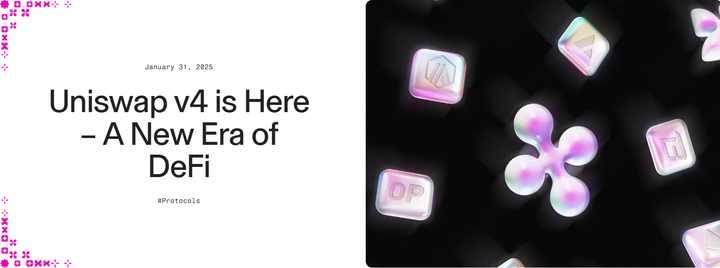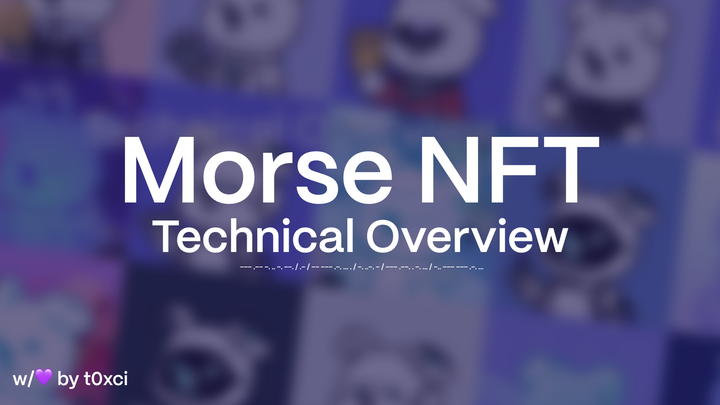Decentralized Court Systems in DeFi: How Protocols Like Kleros Are Forming Decentralized Legal Systems for Protocol Disputes

Introduction
The rise of decentralized finance (DeFi) has brought about a paradigm shift in the way financial services are delivered. With the promise of transparency, accessibility, and efficiency, DeFi protocols have gained significant traction. However, as with any financial system, disputes are inevitable. Traditional legal frameworks often struggle to keep pace with the rapid evolution of technology and the unique challenges posed by decentralized systems. This is where decentralized court systems, such as Kleros, come into play. These systems aim to provide a new model for dispute resolution that is more aligned with the principles of decentralization and blockchain technology.
In this article, we will explore the concept of decentralized court systems, focusing on Kleros as a case study. We will examine how these systems operate, their advantages and disadvantages, and whether they could potentially replace traditional arbitration or escrow services. We will also delve into the implications of decentralized legal systems for the future of DeFi and the broader legal landscape.
1. Understanding Decentralized Court Systems
1.1 What Are Decentralized Court Systems?
Decentralized court systems are platforms that utilize blockchain technology to facilitate dispute resolution without the need for centralized authorities. These systems rely on a network of participants who act as jurors or arbitrators, making decisions based on the evidence presented in a dispute. The key features of decentralized court systems include:
- Transparency: All proceedings and decisions are recorded on the blockchain, ensuring that they are publicly accessible and immutable.
- Decentralization: There is no single point of control, reducing the risk of bias or corruption.
- Incentivization: Participants are often rewarded for their involvement, creating a system that encourages active participation and fair decision-making.
1.2 The Role of Kleros
Kleros is one of the most prominent decentralized court systems in the DeFi space. Launched in 2018, Kleros aims to provide a fast, affordable, and reliable way to resolve disputes arising from smart contracts and other decentralized applications (dApps). The platform operates on the Ethereum blockchain and utilizes a unique mechanism known as "token-curated juries."
1.2.1 How Kleros Works
- Dispute Initiation: When a dispute arises, one party submits a claim to Kleros, along with a deposit in the form of the platform's native token, PNK (Pinakion). The other party is then notified and given the opportunity to respond.
- Jury Selection: Kleros randomly selects a jury from a pool of users who have staked PNK tokens. The number of jurors selected depends on the complexity of the dispute and the amount of PNK staked.
- Evidence Submission: Both parties present their evidence and arguments to the jury. This process is facilitated through a user-friendly interface that allows for the submission of documents, links, and other relevant information.
- Deliberation and Voting: Jurors review the evidence and deliberate on the case. They then cast their votes, with the majority decision determining the outcome of the dispute.
- Enforcement: Once a decision is reached, the outcome is recorded on the blockchain. If the losing party fails to comply with the ruling, the winning party can take further action, such as seeking enforcement through traditional legal channels.
1.3 Advantages of Decentralized Court Systems
- Cost-Effectiveness: Traditional arbitration and legal proceedings can be prohibitively expensive, often involving high fees for lawyers and arbitrators. Decentralized court systems like Kleros significantly reduce these costs by eliminating intermediaries and streamlining the process.
- Speed: Dispute resolution in traditional systems can take months or even years. Kleros aims to resolve disputes quickly, often within a matter of days, thanks to its efficient jury selection and voting mechanisms.
- Accessibility: Decentralized court systems are accessible to anyone with an internet connection, allowing individuals and businesses from around the world to participate in the dispute resolution process.
- Immutability and Transparency: The use of blockchain technology ensures that all proceedings are transparent and tamper-proof. This builds trust among participants and reduces the likelihood of fraud or manipulation.
- Incentivized Participation: Jurors are incentivized to make fair and informed decisions through the staking of PNK tokens. This creates a system where participants have a vested interest in the integrity of the process.
1.4 Disadvantages of Decentralized Court Systems
- Limited Jurisdiction: Decentralized court systems may not have the same legal standing as traditional courts, which can limit their enforceability in certain jurisdictions.
- Complexity of Cases: Some disputes may involve complex legal issues that require specialized knowledge. Decentralized court systems may struggle to address these cases effectively.
- Potential for Bias: While decentralized systems aim to reduce bias, the selection of jurors can still lead to situations where certain biases influence decisions, particularly if jurors are not adequately informed.
- Regulatory Challenges: The legal status of decentralized court systems is still uncertain in many jurisdictions, which could pose challenges for their widespread adoption.
2. Comparing Decentralized Court Systems to Traditional Arbitration and Escrow
2.1 Traditional Arbitration
Traditional arbitration is a widely accepted method of dispute resolution that involves a neutral third party making binding decisions. While it offers several advantages, such as enforceability and expertise, it also has significant drawbacks:
- Cost: Arbitration can be expensive, with fees for arbitrators, legal representation, and administrative costs.
- Time: The arbitration process can be lengthy, often taking months to reach a resolution.
- Limited Transparency: Arbitration proceedings are typically private, which can lead to concerns about fairness and accountability.
- Potential for Bias: Arbitrators may have biases based on their backgrounds or relationships with the parties involved.
2.2 Escrow Services
Escrow services are commonly used in transactions to hold funds until certain conditions are met. While they provide security and trust, they also have limitations:
- Centralization: Escrow services are typically managed by centralized entities, which can introduce risks of fraud or mismanagement.
- Fees: Escrow services often charge fees for their services, which can add to the overall cost of a transaction.
- Delay: The release of funds can be delayed if there are disputes or complications, leading to frustration for the parties involved.
2.3 Decentralized Court Systems as an Alternative
Decentralized court systems like Kleros offer a compelling alternative to traditional arbitration and escrow services. They combine the benefits of cost-effectiveness, speed, and transparency while addressing some of the shortcomings of traditional systems. However, their effectiveness will depend on the nature of the disputes and the willingness of users to adopt these new models.
3. Case Studies: Kleros in Action
Use Case 1: Dispute Resolution for Freelancers
One of the most promising applications of Kleros is in the realm of freelance work. Platforms like Kleros can provide a decentralized mechanism for resolving disputes between freelancers and clients. For example, if a client claims that a freelancer did not deliver the agreed-upon work, the freelancer can submit a claim to Kleros.
The jury would review the evidence, such as communication records and deliverables, and make a decision. This process not only provides a fair resolution but also helps build trust in the freelance ecosystem.
Use Case 2: Token Sales and Initial Coin Offerings (ICOs)
Decentralized court systems can also play a crucial role in the token sale process. In cases where investors feel misled or defrauded during an ICO, they can turn to Kleros for dispute resolution. By providing a transparent and efficient mechanism for resolving these disputes, Kleros can help protect investors and enhance the credibility of token sales.
Use Case 3: Decentralized Autonomous Organizations (DAOs)
As DAOs become more prevalent, the need for effective dispute resolution mechanisms will grow. Kleros can serve as a decentralized court for DAOs, allowing members to resolve conflicts related to governance, funding, and decision-making. This can help ensure that DAOs operate smoothly and maintain trust among their members.
4. The Future of Decentralized Court Systems
1. Potential for Widespread Adoption
As DeFi continues to grow, the demand for efficient dispute resolution mechanisms will increase. Decentralized court systems like Kleros have the potential to become integral components of the DeFi ecosystem, providing a reliable means of resolving disputes without relying on traditional legal frameworks.
2. Integration with Other Protocols
The future of decentralized court systems may involve integration with other DeFi protocols. For example, Kleros could partner with lending platforms, decentralized exchanges, and insurance protocols to offer seamless dispute resolution services. This would enhance the overall user experience and build trust in the DeFi space.
3. Regulatory Considerations
The regulatory landscape for decentralized court systems is still evolving. As these systems gain traction, regulators will need to address questions of jurisdiction, enforceability, and consumer protection. Clear guidelines and frameworks will be essential for fostering innovation while ensuring that users are protected.
4.1 Challenges Ahead
Despite the promise of decentralized court systems, several challenges remain. These include:
- User Education: Many users may be unfamiliar with decentralized court systems and how they operate. Education and outreach will be crucial for driving adoption.
- Technical Barriers: Users may face technical challenges when navigating decentralized platforms. Improving user interfaces and accessibility will be essential for widespread adoption.
- Legal Recognition: Gaining legal recognition for decentralized court decisions will be a significant hurdle. Collaborating with legal experts and regulators will be necessary to address these challenges.
Conclusion
Decentralized court systems like Kleros represent a groundbreaking approach to dispute resolution in the DeFi space. By leveraging blockchain technology, these systems offer a transparent, cost-effective, and efficient alternative to traditional arbitration and escrow services. While challenges remain, the potential for widespread adoption and integration with other DeFi protocols is significant.
As the DeFi ecosystem continues to evolve, decentralized court systems may play a crucial role in building trust and ensuring fair outcomes for all participants. The future of dispute resolution is likely to be decentralized, and Kleros is at the forefront of this transformation.



Comments ()